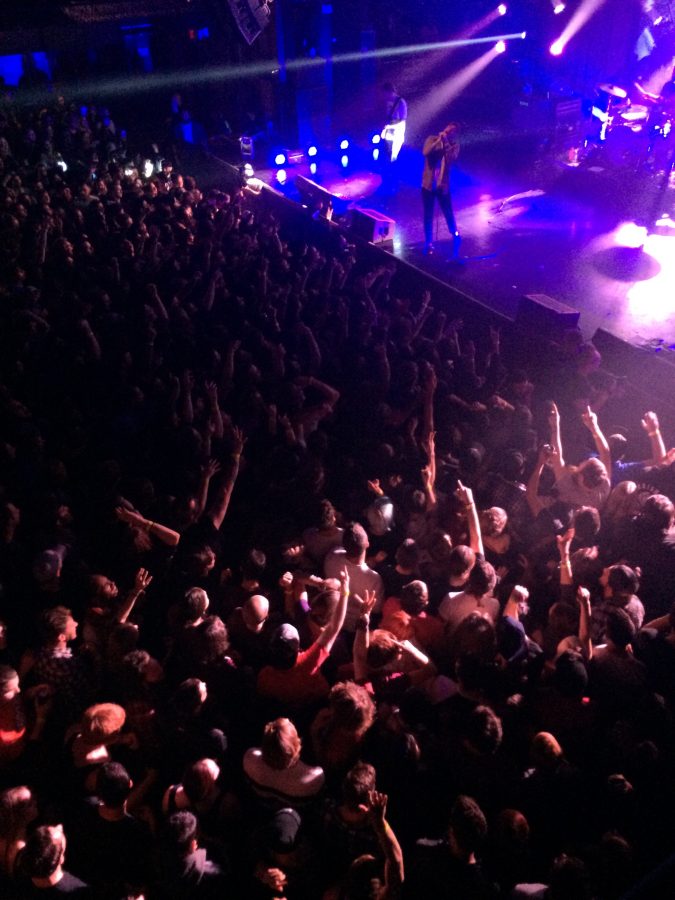I’ve been attending concerts since I was 14. My first concert was Relient K and Anberlin in a church gymnasium in nowheresville, Oregon. Little did I know, those two bands would go on to become huge. I wasn’t concerned with that at the time because I was finally attending a concert!
I had only heard of concerts in stories my siblings would tell, or I’d see them in music videos on MTV, when MTV still did that sort of thing. I never knew what it would be like to finally attend a concert for myself. Granted, my first gig was in a church gym, so it wasn’t necessarily “hype” or “lit” as the kids say these days. However, I had a lot of fun—experiencing music that I enjoyed live for the first time was unreal to me.
Everything changed for me that day.
Fifteen years later, I cannot tell you how many gigs I have attended, played, or organized, it’s literally in the thousands. However, I can tell you that I have attended, played, or organized gigs in pizza bars, beer-soaked basements, bowling alleys, coffee shops, fields, parking lots, in the woods, in the mountains, in a meat locker, in other churches, auditoriums, arenas, stadiums, in a stairwell, in a dorm hallway (which I’m fairly confident was a fire hazard), in a fancy concert hall, record stores (also likely a fire hazard), a bedroom, a kitchen, and of course, living rooms. If there was space enough for a human to play an instrument, I have likely experienced a gig there.
I spent a fair share of my college experience planning concerts in and around the Willamette Valley of Oregon, which stretches from Portland down to Roseburg. I learned a lot during those years. I learned a lot about how people attend concerts, how to get people to concerts, and how to be okay with no one attending the concert you planned for weeks—it comes with the territory.
All of this is to say that I’ve come a long way since my first church gymnasium gig, and what stands out to me the most, amidst all that I’ve experienced over the years, is that all types of people love live music.
Music brings people together. From the most intimate living room gig to the large-scale arena gigs, people come together around a shared love of artists, bands, and the spectacle of music.
I recognize the value of larger gigs—even festivals. While I am not particularly fond of most festival settings, especially outdoor festivals where smoking can become an issue, they are among the most human of experiences. People gather in large fields to pay homage to music and being alive. It’s beautiful. I recently attended Boston Calling at its new home at Harvard’s athletic fields, and it was a great experience. Luckily, I don’t drink, so I didn’t have to stand in absurdly long lines. But I got to see so many bands that I love (including seeing Tool—a personal favorite—for the first time) for one inclusive price. It’s a smart investment if you ever get the chance.
Festivals can be messy, noise pollution (conflicting sounds bouncing off one another) can dampen the experience, and if you aren’t a particular fan of being surrounded by hordes of people, it’s likely not the space for you. But even larger spaces like the House of Blues or Royale cater to folks who want to see a bigger act but don’t want to use binoculars like you would at TD Garden, Gillette Stadium, or Blue Hills Bank Pavilion—which has fantastic sound, by the way. I think both Royale and House of Blues are perfect venues for tunes in the city: there isn’t a bad seat in the house and you can still make out the faces of the band members.
TD Garden, Gillette Stadium, and/or Blue Hills Bank Pavilion are perfect if you like a spectacle. And there is definitely space for that experience. One of the coolest things about larger scale events is a good light show or a good visual show. Tool utilized the massive screens at Boston Calling to showcase their myriad of visualizations that tantalized the crowd while the band performed. The spectacle of these larger concerts is perhaps the most common representation of a gig in movies, TV shows, etc. And I think a lot of reality TV (American Idol, The Voice) is to blame for some of this—it makes gigs feel huge. That’s not necessarily a bad thing, but it can give some folks improper expectations when they go to a smaller venue.
At the end of the day, if you’re into seeing bigger acts at a massive scale, and don’t care too much about being able to see the performers, go for larger venues—you’ll get more in terms of entertainment value for sure. These gigs are often more expensive, but that ensures an almost unforgettable experience. So long as you’re going out and enjoying music, have fun and rock out!
I’ll be back with a chat about smaller venues and how technology impacts those gigs.

